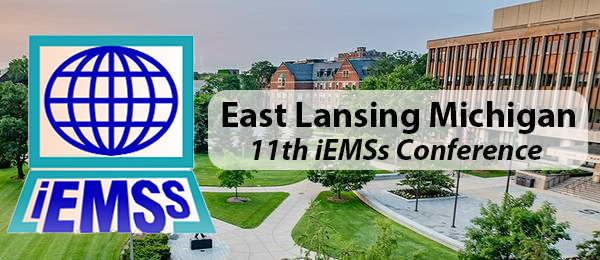Keywords
reusable modules; irrigation; crop growth; decentralised water management; water user association
Start Date
5-7-2022 12:00 PM
End Date
8-7-2022 9:59 AM
Abstract
We have developed an agent-based model called ‘WATER user associations at the Interface of Nexus Governance’ (WATERING) to explore the functions, opportunities, and challenges of decentralised water management in Sub-Saharan Africa. WATERING models the interactions between water users, a Water User Association (WUA) and an irrigation system. A WUA can adopt different policies to allocate and supply water to users. Each type of user responds differently to the WUA’s policies depending on individual circumstances and objectives. Our model demonstrates the impact of decisions and actions taken by water users and the WUA on water availability, consumption, and the resulting economic productivity within an irrigation scheme. We have converted two sub-models in WATERING into Reusable Building Blocks (RBBs): one to simulate the flow of water through an irrigation system consisting of a reservoir and canal network, and another to simulate crop growth during the growing season divided into four distinct growth stages (initial, development, mid-season, and late season). The growth of crops is affected by the quantity of water available for irrigation. We share the code and describe the RBBs, their context and suggestions for application (e.g., to simulate irrigation systems) in online repositories (https://github.com/kavinpreethi/WATERING_IRRIGATION_RBB.git and https://github.com/kavinpreethi/WATERING_CROPGROWTH_RBB.git). Considering the analogy of reusable modules in software development, we suppose the model settings in the RBBs we have shared are in effect the parameters for the code, while the outputs are the water level per patch (for the irrigation RBB) and the fraction of crop growth (for the crop growth RBB). In our research, we combined these RBBs with behaviour sub-models based on empirical data from Sub-Saharan Africa to answer specific questions about decentralised water management in Sub-Saharan Africa.
Reusable Components for an Agent-based Model of Irrigation Management
We have developed an agent-based model called ‘WATER user associations at the Interface of Nexus Governance’ (WATERING) to explore the functions, opportunities, and challenges of decentralised water management in Sub-Saharan Africa. WATERING models the interactions between water users, a Water User Association (WUA) and an irrigation system. A WUA can adopt different policies to allocate and supply water to users. Each type of user responds differently to the WUA’s policies depending on individual circumstances and objectives. Our model demonstrates the impact of decisions and actions taken by water users and the WUA on water availability, consumption, and the resulting economic productivity within an irrigation scheme. We have converted two sub-models in WATERING into Reusable Building Blocks (RBBs): one to simulate the flow of water through an irrigation system consisting of a reservoir and canal network, and another to simulate crop growth during the growing season divided into four distinct growth stages (initial, development, mid-season, and late season). The growth of crops is affected by the quantity of water available for irrigation. We share the code and describe the RBBs, their context and suggestions for application (e.g., to simulate irrigation systems) in online repositories (https://github.com/kavinpreethi/WATERING_IRRIGATION_RBB.git and https://github.com/kavinpreethi/WATERING_CROPGROWTH_RBB.git). Considering the analogy of reusable modules in software development, we suppose the model settings in the RBBs we have shared are in effect the parameters for the code, while the outputs are the water level per patch (for the irrigation RBB) and the fraction of crop growth (for the crop growth RBB). In our research, we combined these RBBs with behaviour sub-models based on empirical data from Sub-Saharan Africa to answer specific questions about decentralised water management in Sub-Saharan Africa.



Stream and Session
false